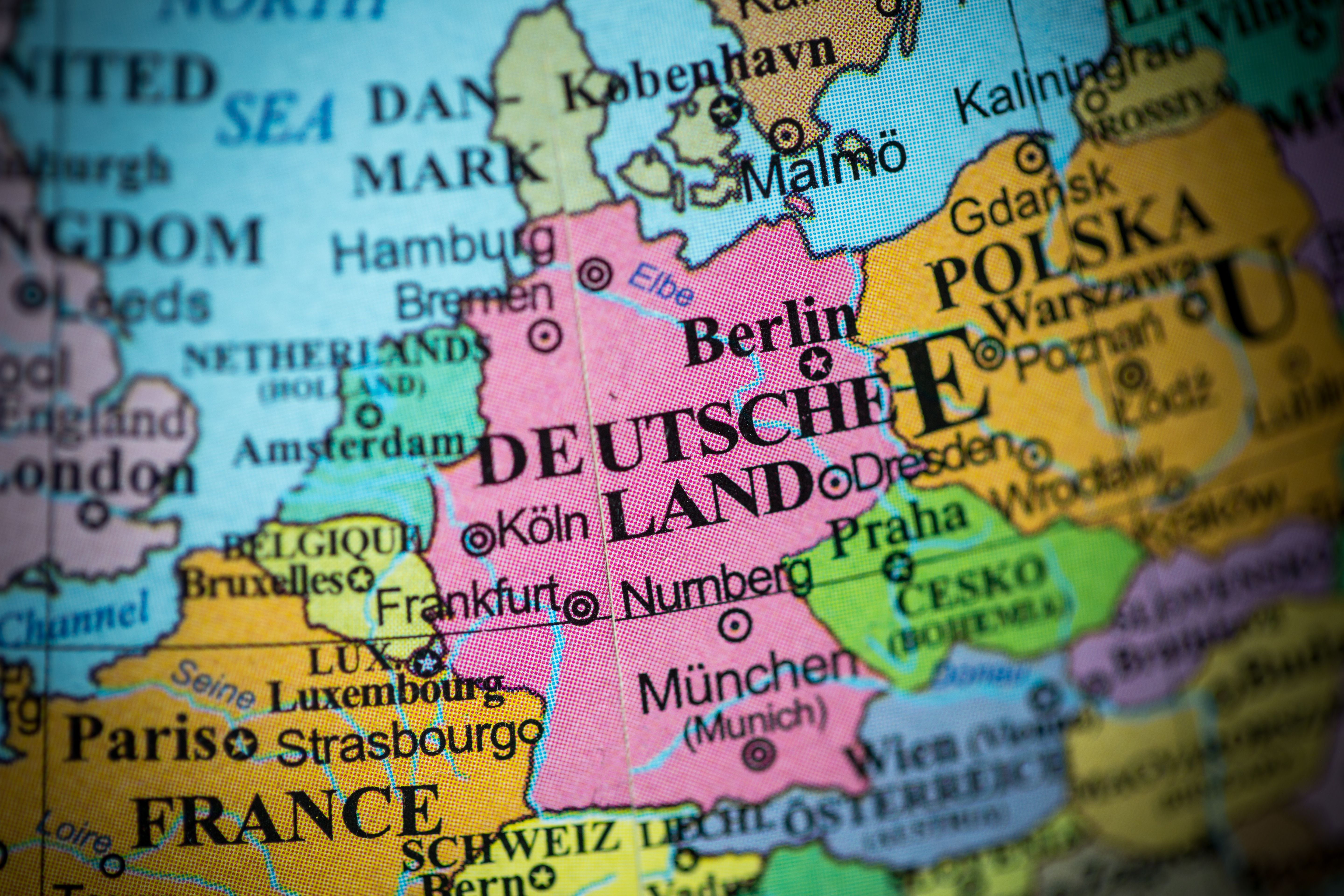Do ethnic Germans have the right to defend their majority status in their homeland?
On March 8, a top German court in Cologne ruled that the Alternative for Germany (AfD) party could be labeled a “suspected threat” to Germany’s constitution, known as the Basic Law. The verdict is arguably one of the most important court decisions in modern German history, effectively marking a major turning point in the country’s democracy. With the decision, the court effectively “canceled” an entire political party with thousands of members and millions of votes from the political map, with the party burdened with near pariah status due to the enormous pressure it faces from the German state.
The direct political consequences of the verdict cannot be understated. In short, it paves the way for every member and politician in the party to be actively surveilled by the German state. It will also permit law enforcement to use informants throughout the party. Germany’s powerful domestic intelligence agency, the Office of the Protection of the Constitution (BfV), will have nearly unlimited power to surveil and monitor the private life of nearly anyone who chooses to associate with the party, regardless of whether that person has been accused of any crime.
File picture taken May 1, 2019 shows AfD supporters walking past a party election poster in Erfurt, Germany. (AP Photo/Jens Meyer, file)
As Remix News previously reported, one of the key justifications offered for this watershed moment in Germany’s democracy was the judges’ claim that there were signs the AfD sought to reduce non-German ethnic groups in Germany, and that the party operated under the paradigm of the “German people” as an ethnic concept. The court argued that advocating for the ethnic German people is in clear opposition to Germany’s Basic Law.
“The German people are central to our Basic Law”
Interestingly enough, in an interview with the Junge Freiheit news outlet, the vice-chairman of the AfD party in Hamburg, Alexander Wolf, did not immediately dispute the court’s ruling that the AfD operated under such an ethnic principle (although certainly other high-ranking members of the party would refute such a claim entirely). Instead, Wolf said that the ethnic concept of the German people is actually protected in the Basic Law.
“The German people are central to our Basic Law; the ‘German people’ gave themselves this basic law. This concept is something different than the ‘population within the borders of the Federal Republic of Germany,'” he said.
“Article 116 of the Basic Law expressly speaks of German ethnicity in addition to nationality. And for our citizenship law, [ethnic] descent was central until the year 2000.”
Wolf is referring to Article 116 (1 and 2), which states, “Unless otherwise provided by a law, a German within the meaning of this Basic Law is a person who possesses German citizenship or who has been admitted to the territory of the German Reich within the boundaries of 31 December 1937 as a refugee or expellee of German ethnic origin or as the spouse or descendant of such person.”
The second clause states that “Former German citizens who, between 30 January 1933 and 8 May 1945, were deprived of their citizenship on political, racial or religious grounds and their descendants shall, on application, have their citizenship restored. They shall be deemed never to have been deprived of their citizenship if they have established their domicile in Germany after 8 May 1945 and have not expressed a contrary intention.”
German government intends to ban conservative AfD party, warns party chairman
The law refers back to the end of World War II, when ethnic Germans were expelled from countries across Europe, forcing them to leave or be killed in many cases following reprisals. Article 116 gave ethnic Germans fleeing into Germany’s postwar territory automatic citizenship, with a specific mention to the “racial” nature of these reprisals.
As to Wolf’s assertion that [ethnic] descent was central to the German system until 2000, there is some basis for that claim. For decades following World War II, Germany continued to operate under a system that was greatly biased towards Germans of ethnic descent, particularly in favor of men of German ethnic descent, at least when it came to the issue of citizenship.
For example, children born in wedlock between Jan. 1, 1914 and Dec. 31, 1974, acquired German citizenship only if the father was a German citizen at the time of their birth. Even for German women who had a child born into wedlock during the same time period, if the father was not a citizen, the child would receive citizenship only if that child would become stateless without German citizenship. After 1974, children born into wedlock where at least one parent was a German citizen became German citizens automatically.
In 2000, the German Citizenship Law did away with all of this. The law effectively removed the “blood” aspect of German citizenship, and determined that two foreign parents born on German soil could have their child eligible for German citizenship as long as one parent has resided in Germany for at least eight years. Germany’s new left-wing government looks to further relax that law and make other reforms to speed up the naturalization process for new immigrants.
Following World War II, most German citizens were ethnic Germans, and Germany remained more or less an ethnically homogeneous state, with the exception of its Turkish guest worker population, if not explicitly, at least implicitly. In this regard, Germany was not so different from many European nations at the time.
The AfD’s Wolf contends that the there is nothing actually wrong with the Basic Law, and that it is only in the last few years that a politicized court has slowly been transforming the meaning of Germany’s constitution to disregard any concept of ethnicity. Now, Germany’s progressive judges are actually going so far as to claim anyone who says otherwise is a threat to that very constitution, which is the situation AfD currently finds itself in.
“The problem is that the political class has been turning this understanding of the Basic Law upside down for years, and that the courts, the politicized Federal Constitutional Court and other courts, are following suit. The OVG Berlin-Brandenburg declared in the middle of last year that maintaining differences between peoples violates Article 1 of the Basic Law of human dignity. This is obviously absurd, even unconstitutional — and at the same time it is applied by the courts as applicable law,” he said.
“We must work to ensure that this misinterpretation of the Basic Law is corrected,” he added.
Can ethnic Europeans organize politically?
Whether Wolf will change the thinking of a German political establishment increasingly dedicated to the idea of a multicultural, multi-ethnic nation, remains to be seen, but the whole debate raises an important question: can ethnic Germans lobby to maintain their majority status in their own country, particularly in the form of a political party?
It is an important question. While many ethnic Germans reject the idea that they are even a group that needs any representation, most ethnic groups in the world view political representation as a key element of not only furthering their goals, security and interests on an individual level, but also as a people. Germany’s historical guilt over World War II has made the country’s majority especially uncomfortable expressing any concerns over their demographic future, yet, there are signs that despite Germany’s welcoming image, many Germans remain opposed to mass immigration from non-EU countries and a sizeable oppose immigration even from other EU countries.
Statistics show that at least one out of every eight Germans is a foreigner, and the country’s foreign population increases every year, while the share of ethnic Germans decreases in turn. At the same time, the current left-wing government appears set to dramatically accelerate mass immigration in the coming years.
Yet, Germany’s court system is effectively asserting that the largest party opposed to mass immigration, the AfD, is not permitted to lobby and fight for their constituents when it comes to this specific concern. They are now a “threat to democracy,”. A move to squash the AfD by the courts — which have always lacked a certain element of democratic legitimacy — may be an attempt to preemptively snuff out democratic opposition to the German left’s increasingly aggressive immigration agenda.
Everyone else is doing it
Within Germany, minority ethnic blocs already exist and operate to maximize their interests. For example, the largest of these groups, Turkish-Germans, strategize on which parties to vote for, with the Christian Democratic Union (CDU) particularly “unelectable because of its policy on Islam,” according to a report from Deutsche Welle. The report also details how Turks are disappointed there are not more explicitly “pro-Turkey” parties in Germany, but work to identify which parties will benefit Turkey and Turks the most.
Not all Turks vote along with the objectives of Turkish nationalism, but this ethnic group does vote almost entirely for pro-migrant parties, and they have every motive for doing so. So far, given their smaller size relative to the German population, they have been unable to materialize Turkish nationalist goals into a standalone political party — despite trying on a number of occasions. Even with Germany’s Muslim population only set to grow over the coming years, the dream of an explicitly pro-Islam, pro-Turkey party is unlikely to come to fruition due to the high thresholds parties have to enter government, but the immigrant and foreigner voting bloc will undoubtedly gain more power.
German Turks also show other signs that they remain deeply invested in Turkey, with voting patterns revealing a worrying trend for progressive Germany. Nearly half of Germany’s Turks are still allowed to vote in Turkey, and they vote overwhelmingly for the country’s Islamic strongman, Recep Tayyip Erdoğan.
Turkish interior minister: Mass migration will bring down Europe’s governments
Read More Here: Remix News






